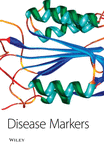A Systematic Review of Studies Examining Inflammation Associated Cytokines in Human Abdominal Aortic Aneurysm Samples
Abstract
Objectives: Inflammation is critical in abdominal aortic aneurysm (AAA) but there is no current consensus on which inflammation related cytokines are important. The aim of this review was to systemically assess previous studies investigating the relative expression of inflammation associated cytokines within human AAA samples.
Methods: The MEDLINE database was searched for studies which simultaneously examined an array of different inflammation associated cytokines in aortic samples in order to identify those associated with AAA. Focused searches were then conducted for further studies assessing relative concentrations of these cytokines in aortic samples in relation to AAA. Appropriate studies were assessed by two reviewers independently.
Results: Eighteen studies were included. A number of different cytokines have been consistently found to be upregulated within AAA by comparison to aortic samples removed from patients without cardiovascular disease, however findings relative to samples of aortic athero-thrombosis were less consistent. TNFA and INFG appear to be the most consistently associated with AAA in studies using both normal and atherosclerotic controls. Cautious interpretation of these data is recommended due to a number of methodological problems.
Conclusions: This systematic review suggests that TNFA and INFG are the most consistently upregulated cytokines in large AAAs. Further studies utilizing larger populations, new proteomic techniques and better patient matching are required.




